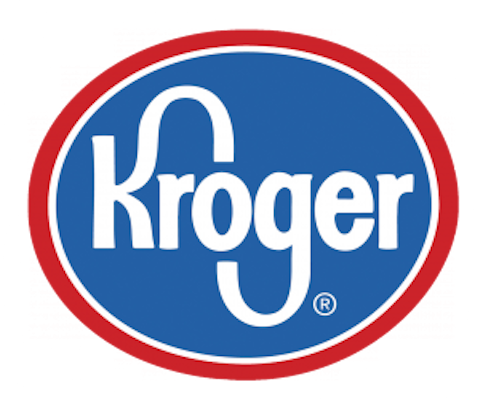
”Grocery chains have low margins and slow growth, making investing in them usually unappealing. The Kroger Co. (NYSE:KR) has seen its share price surge since the middle of 2012, up 80% from its 52-week low. […] It seems that investors are getting excited about grocery stores, sending Kroger’s shares flying, while forgetting that it’s a grocery store.”
But The Kroger Co. (NYSE:KR) is no ordinary grocery store. It’s the best company in the industry and the stock’s valuation does make sense with greater context.
Kroger is the best house in a bad neighborhood
But before we get started, let me completely acknowledge that supermarkets are a pretty crappy business (is that the technical term?). As Timothy mentioned the industry is plagued by tight margins and slow growth. At this point, almost all of the grocery stores America will ever need have already been built.
Worse, the industry is under attack from all sides. At the top-end, high-end organic chains like Whole Foods Market, Inc. (NASDAQ:WFM) are stealing market share. At the low-end, Wal-Mart Stores, Inc. (NYSE:WMT) and dollar stores are compressing margins. You’ll need some rose tinted goggles to make this sector look attractive.
Yet despite the troubling economics, The Kroger Co. (NYSE:KR) has weathered the barrage surprisingly well due to an exceptional management team and excellent execution.
First, the company identified emerging threats before its rivals like Safeway Inc. (NYSE:SWY) and SUPERVALU INC. (NYSE:SVU). Management sacrificed margins for market share over a decade ago allowing the company to become the country’s largest grocer. Today, Kroger is the only company with the size and scale needed to compete against a juggernaut like Wal-Mart.
Worried that prices might fall further? You shouldn’t be. During the company’s last investor day conference management hinted that they were comfortable with their current pricing strategy. That could mean my favorite two words in the English language: margin expansion!
Second, The Kroger Co. (NYSE:KR) was one of the first supermarkets to see the boom in private label brands. At this moment, consumers across all demographics are looking for ways to save on basic necessities and we’re seeing an explosion in private branded products. No longer will shoppers pay a premium for Kellogg Frosted Flakes. The store brand will due just fine.
Kroger is a leader in the private label trend with store brands which account for 27% of the company’s sales. Cutting out the middleman means higher margins for the retailer. In contrast, Kroger’s rivals have been slower to exploit this trend. Private label products account for only 25% and 20% of Safeway Inc. (NYSE:SWY)’s and SUPERVALU INC. (NYSE:SVU)’s revenues respectively.
Altogether, both scale and private brands make The Kroger Co. (NYSE:KR) the most profitable of its peers. Please note, all of the below figures are for full year 2012.
| Company | Gross Margin | Operating Margin | Net Margin |
|---|---|---|---|
|
|
|
|
|
|
|
|
|
|
|
|
Investors forget that Kroger is more than just a supermarket
Kroger also operates several chains of convenience stores and jewelry shops. Pharmacy and jewelry account for 10% of the company’s revenues and an even higher portion of the firm’s profits so it’s unfair to label this company as a pure-play grocery business.
In addition Kroger’s $2.4 billion acquisition of Harris Teeter represents the beginning of the company’s efforts to move into high-end retail. This segment is attractive because of its faster growth and fatter margins. All round, it’s a smart move for the company.
Kroger isn’t as expensive as you might think
Of course at the end of the day The Kroger Co. (NYSE:KR) is still a grocer. Why should investors pay a premium for the stock?
Because Kroger is still cranking out surprisingly strong growth. On the top line, the company is generating 3.5% same store sales gains with plans to open additional locations. Throw in some improved operational efficiencies and a steady share buyback program and you have a recipe for 10% earnings growth.
Yes, you read that right. Management is targeting a long-term annual earnings growth rate between 9% and 11%.
When you consider that shares are trading at around 11 times forward earnings, Kroger’s valuation looks downright reasonable with a 1.1 PEG ratio. That’s perhaps a simplistic analysis, but that ratio is well below turbo-charged growth stocks like Whole Foods or The Fresh Market Inc (NASDAQ:TFM).
Foolish bottom line
The Kroger Co. (NYSE:KR) was priced as a stodgy old supermarket. But this company is no ordinary grocer – and investors are just starting to realize that.
The article This Is No Ordinary Supermarket originally appeared on Fool.com and is written by Robert Baillieul.
Robert Baillieul has no position in any stocks mentioned. The Motley Fool owns shares of Supervalu. Robert is a member of The Motley Fool Blog Network — entries represent the personal opinion of the blogger and are not formally edited.
Copyright © 1995 – 2013 The Motley Fool, LLC. All rights reserved. The Motley Fool has a disclosure policy.


